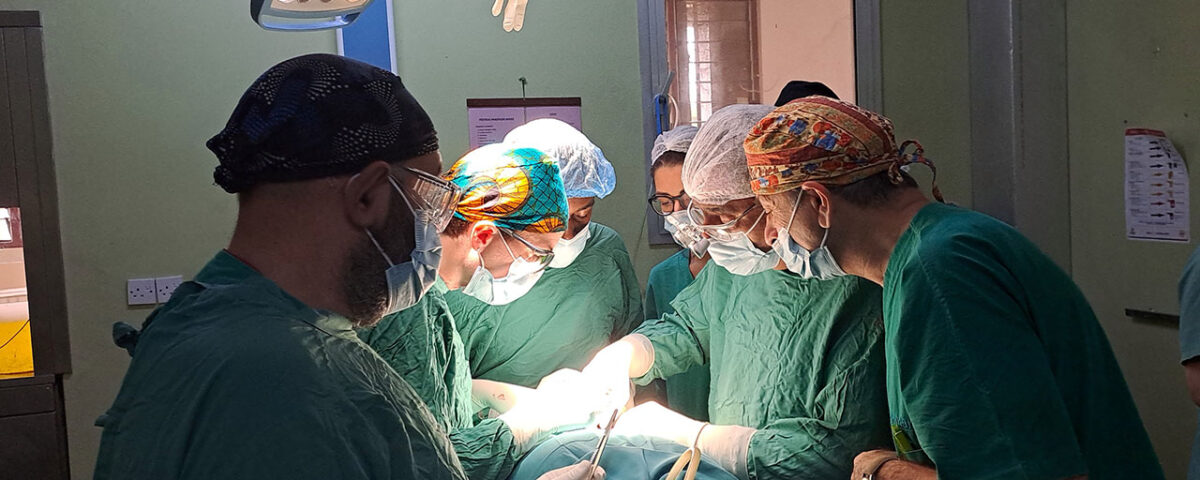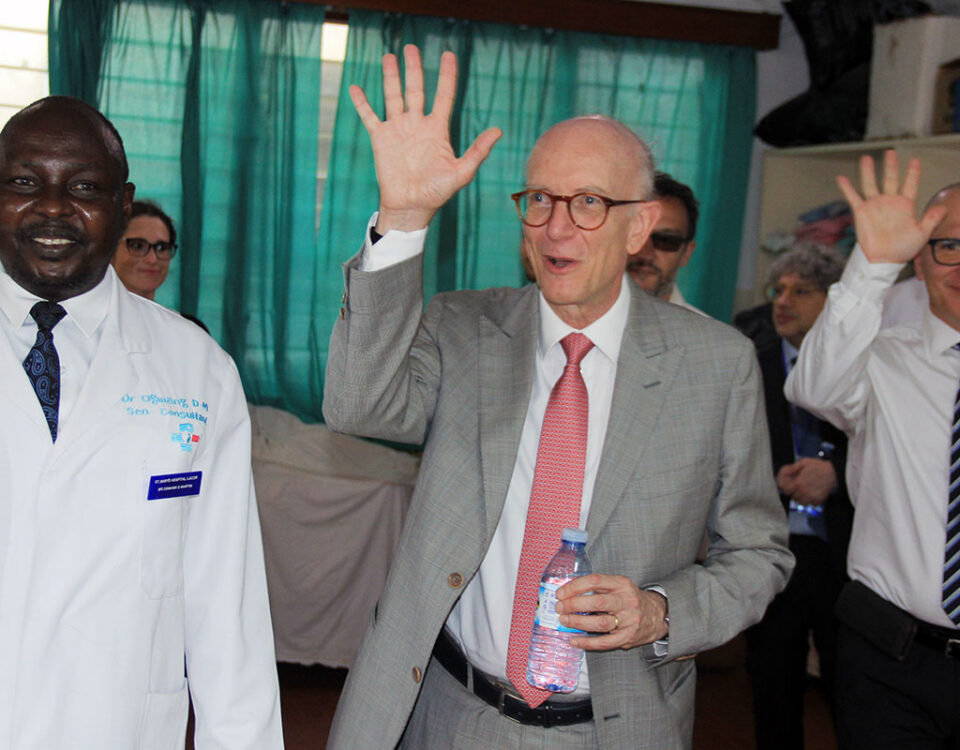For over a decade, Dr. Roberto Santoro, an Italian surgeon and professor, has been coming to St. Mary’s Hospital Lacor in the company of his colleagues and some students from the University of Florence to conduct a thyroid surgical camp.
The camp, that usually lasted anywhere from one to two weeks was scheduled to last for three weeks this time round. This allowed for more people to be screened and operated on. In total, 93 people were screened and 57 underwent surgery.
The surgeons performed both total thyroidectomy and thyroid lobectomy depending on the case. A thyroid lobectomy is used to remove one of two thyroid lobes, leaving the other intact. It may be performed if there are nodules that cause symptoms or could be cancerous or to treat excessive hormone production like that associated with hyperthyroidism.
Total thyroidectomy on the other hand is the surgical removal of all of the thyroid gland. It is used to treat thyroid disorders such as cancer, noncancerous enlargement of the thyroid (goiter) and overactive thyroid (hyperthyroidism).
For most of the patients coming to Lacor, the problem has been goiter which is the irregular growth of the thyroid gland.
Among the many patients who turned up for the surgical camp was Katereke Elinam, all the way from Masindi district, some 173km away from Gulu City where Lacor Hospital is located. It takes approximately 3hrs on a public means.
The story of Katereke
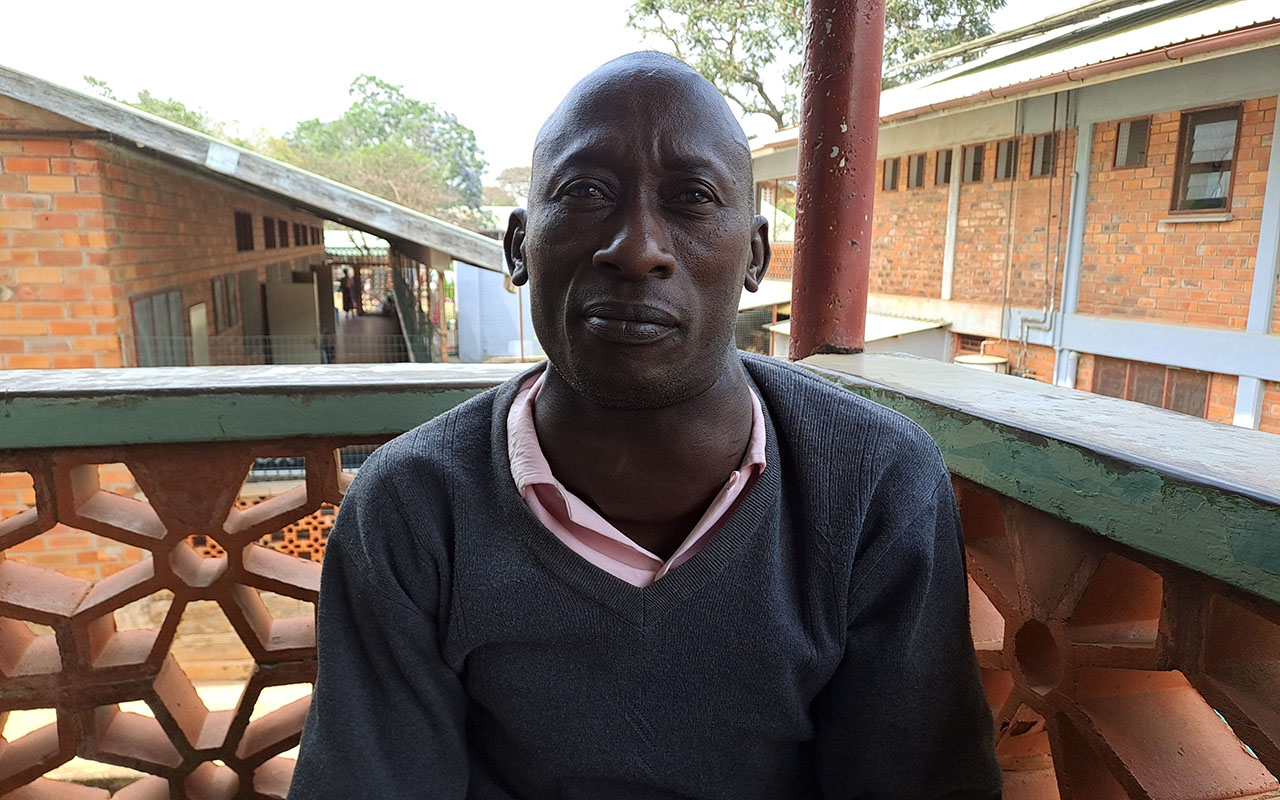
Katereke before the surgery
When Katereke first came to Lacor, he had no idea he would be walking into a free surgical camp focusing on goitre at the hospital.
Mr Katereke had been battling for 25 years. He was first diagnosed when he was a high school student and because it wasn’t giving him any trouble, he didn’t treat it as an urgent matter. But when a huge swelling appeared on his neck, he ran to an herbalist to restore his looks.
Through the years, Katereke frequented the herbalist’s home with no tangible results.
After exhausting all his resources, the 52-year-old carpenter turned to his relatives for help to come to Lacor. He had never been to the hospital, but he was convinced that if he could get enough money, Lacor would bring an end to his woes by performing the much-needed surgery. A friend suggested that it could be cheaper at Lacor than anywhere else in the country.
“I have always been knowing it that they [Lacor Hospital] can do such complicated things,” he said.
It took Katereke and his younger sister and brother a year to raise what they thought could be enough for the surgery and then he set off for Lacor. However, Katereke was filled with joy when he learned that he would be treated for free. But before he could take everything in, a slight twist of events made him hesitant.
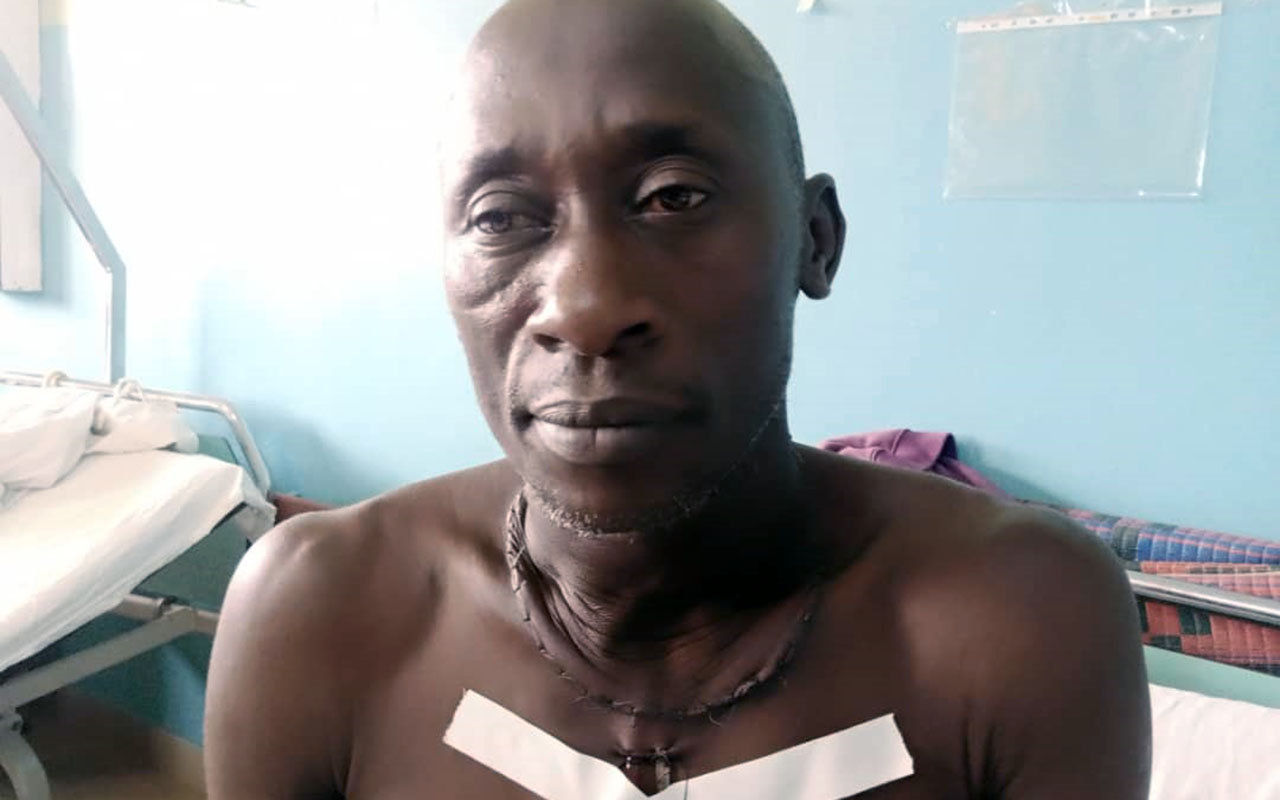
Katereke after the surgery
“When I met the doctor here, the white man, he told me that he’s ready to operate me if I can agree to buy the drugs, which can sustain me my [whole] life after they have removed it.” For a moment Katereke was convinced that he’d never be able to afford the daily dose of levothyroxine that would cost him 30,000shs every month.
In the valley of decision-making, he reached out to his brother who had come along with him. The brother encouraged him to accept the surgery and go back home a free man. He reassured Katereke of his support. That was enough to convince Katereke to get booked the next day.
The surgery lasted somewhere between two to two and a half hours. Although Katereke required a few days at the ICU, he recovered quickly and thanked the people who worked on him.
What causes goiter?
Goiter is a condition where the thyroid gland grows larger. It can be caused by various factors, such as iodine deficiency, Hashimoto’s disease, Graves’ disease, thyroid nodules and thyroid cancer. It can lead to various health problems, such as difficulty breathing, swallowing, and speaking, as well as fatigue, weight gain, and depression.
Goiter is mainly caused by iodine deficiency, which is a lack of iodine in the diet. Iodine is an essential mineral that helps the thyroid gland produce hormones that regulate the body’s metabolism and growth.
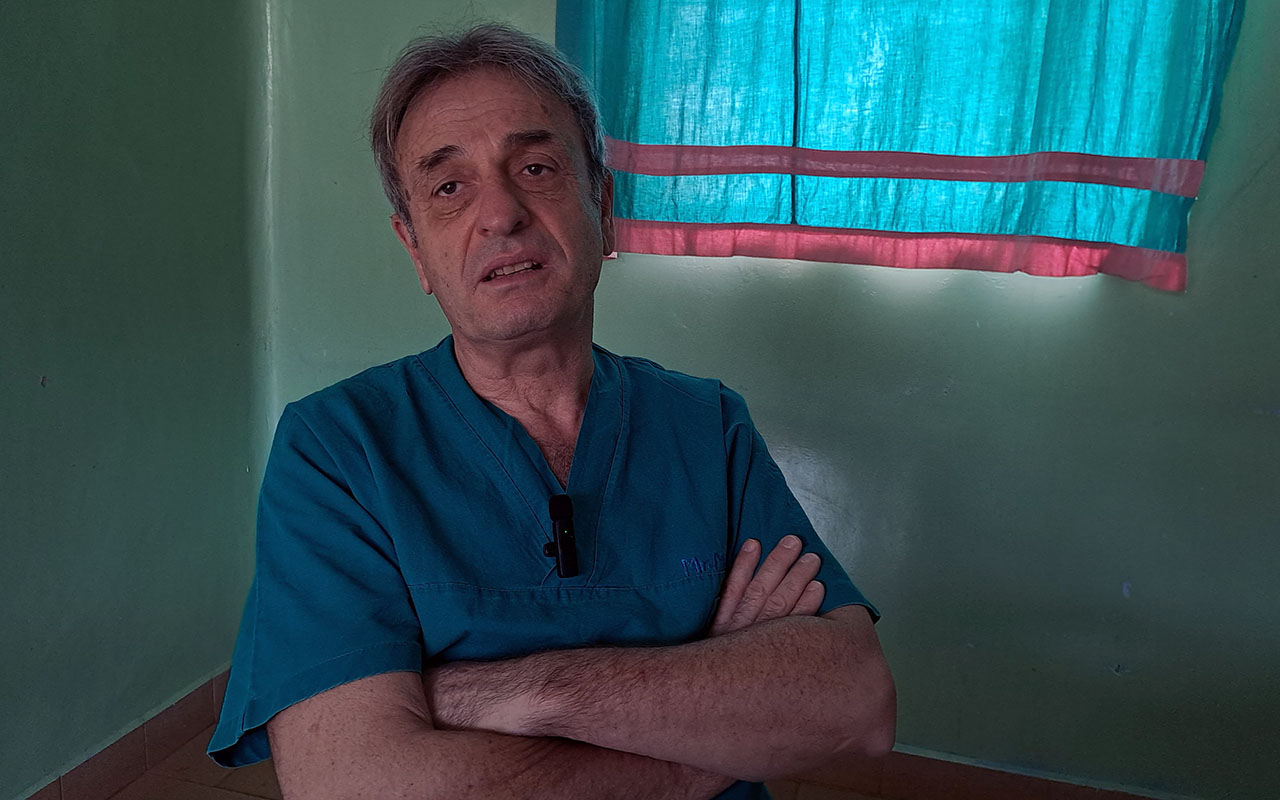
Dr. Roberto Santoro
According to Dr. Santoro, the people of northern Uganda are more prone to goiter because of their consumption of cassava, a root vegetable that is a common staple food in the region.
“There’s a goitrogen factor in the cassava that you eat that in some way produces goiter and thyroid diseases,” he says. Goitrogens are substances that interfere with the normal function of the thyroid gland and can cause goiter, especially in the presence of iodine deficiency.
In 1978, a study by P. Bourdoux and others revealed that cassava contains cyanogenic glucosides, which are natural substances that can produce cyanide when crushed, cut or chewed. The human body converts cyanide into thiocyanate, which is a goitrogen. Therefore, cassava ingestion puts one at a risk of having goiter.
Iodine deficiency is a public health problem that affects many communities in Uganda and other sub-Saharan African countries. The consumption of goitrogenic foods, such as cassava, millet, cabbage, and kale, which can interfere with iodine uptake by the thyroid gland influence the prevalence and severity of iodine deficiency.
Cassava is the second major staple food in Uganda and is important as a source of household income and industrial use. Some of the communities that consume a lot of cassava the Lango and Alur communities in northern Uganda. Incidentally, majority of the patients that Dr. Santoro and his team treats are from these communities.
Just like Katereke, there are thousands in this region who consume cassava on daily basis. Cassava is a popular food in northern Uganda because it is drought tolerant, high yielding, and provides food security for many people.
More than 500 have undergone thyroidectomy since Dr. Santoro first introduced the surgical camp at Lacor. They have come from as far as Busia, a border town
Capacity building
Apart from offering free surgery to those who cannot afford, the annual surgical camp has also strengthened ties between Lacor Hospital and the University of Florence. The team from both institutions work hand-in-hand and this has inspired local doctors to pick up interest in ENT surgery.
For budding surgeons like Dr. Derrick Mukurasi, this has been an opportunity to learn from international teams, share skills and compare notes from what they had been taught at home.
“I have had the opportunity to do my own procedure under their supervision and I can say yes, am almost 80% confident now on how to approach thyroid cases and how to perform the surgeries, given the exposure that I have received,” said Dr. Mukurasi who did a solo on a goitre patient for the very first time during the camp.
For Akot Jane Ongom, the In-charge Main Operating Theatre, this is a special gift to the most vulnerable. “There are poor patients from deep in the village who cannot afford, so this is the chance that they can work on them,” she says.
The University of Florence also signed a Memorandum of Understanding with Gulu University that will see residence from both ends crossover to learn from each other through an exchange program.
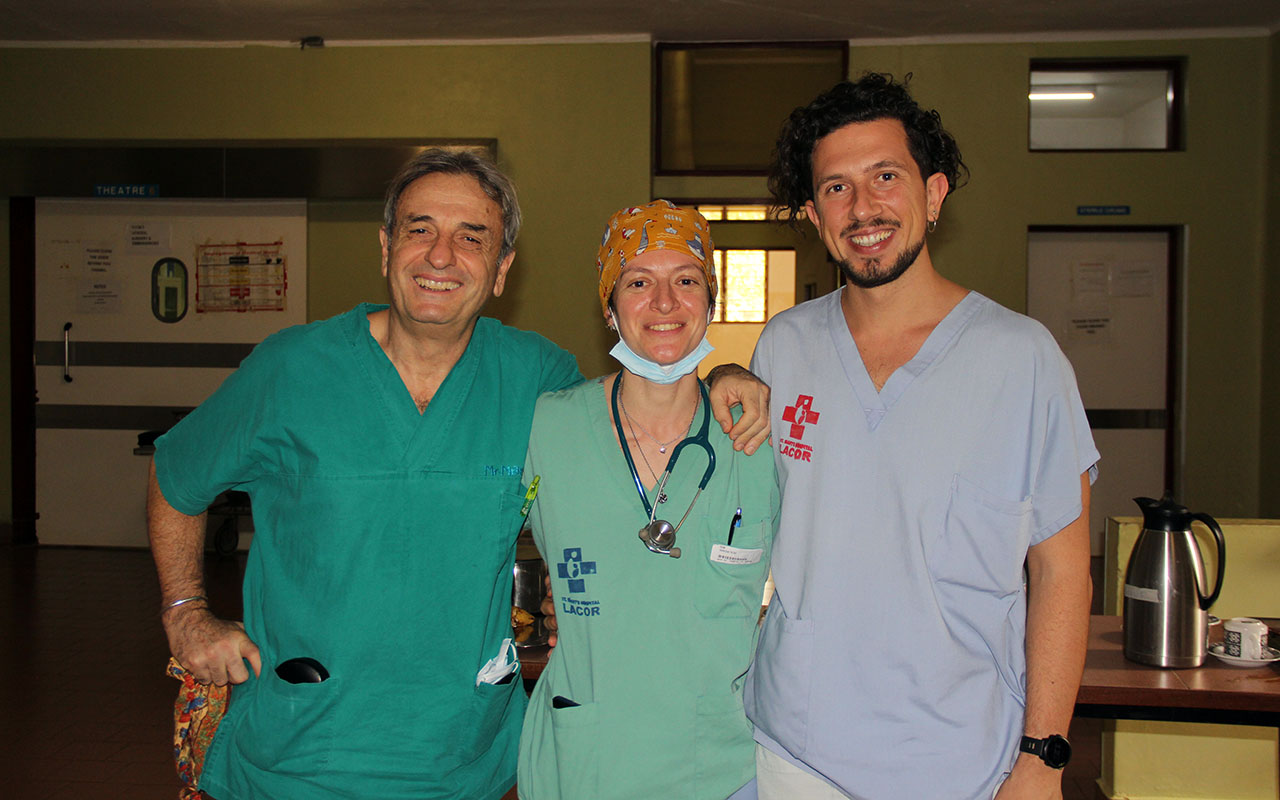
Some of the team members from the University of Florence

